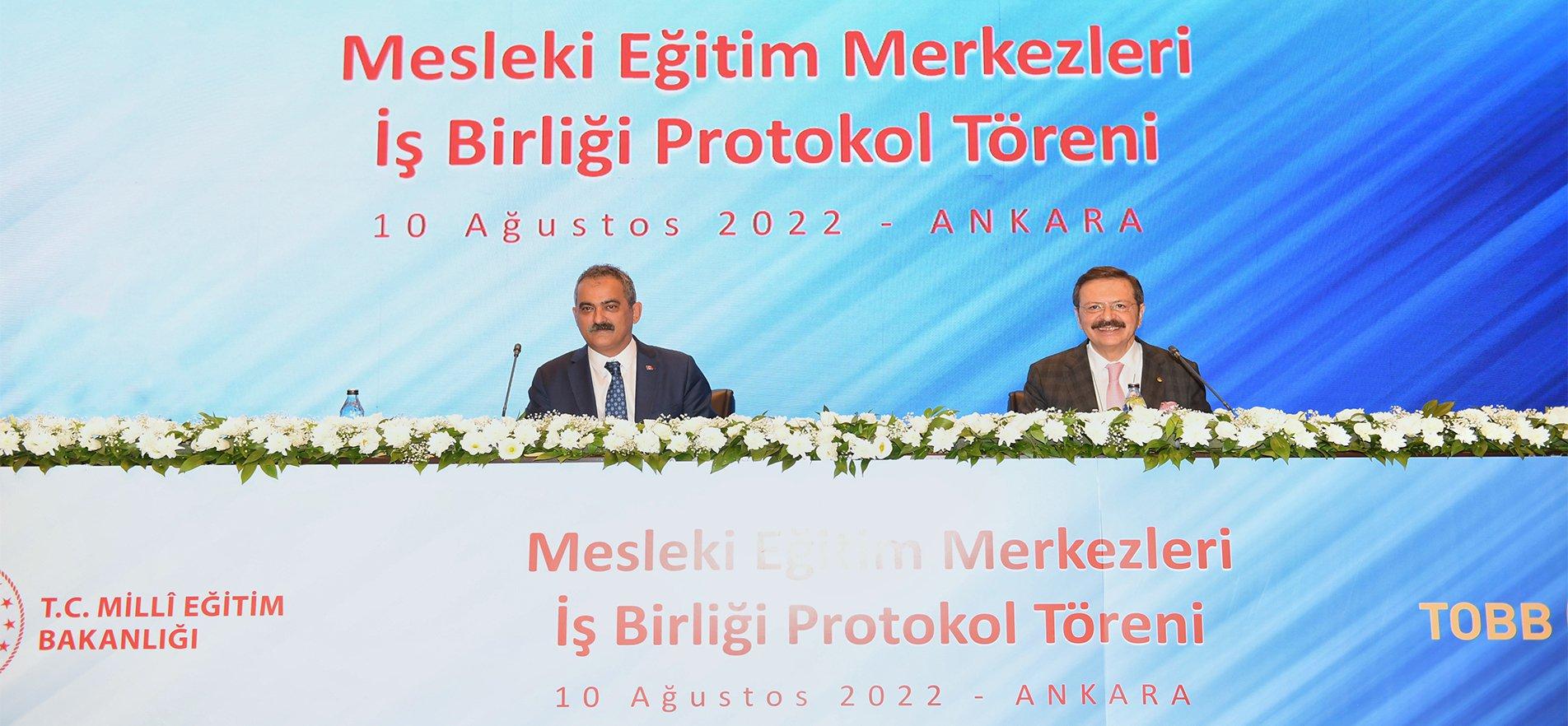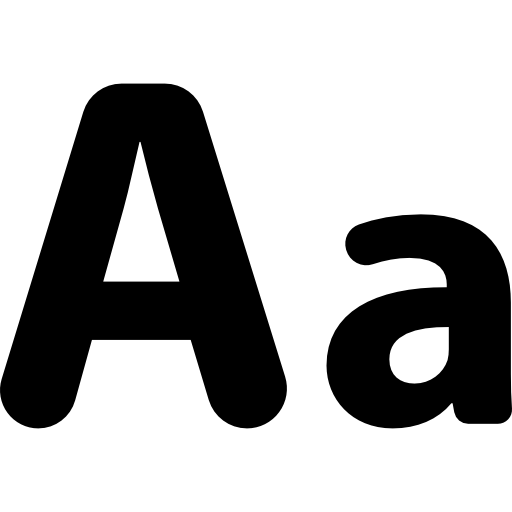Minister of National Education Mahmut Özer said during his speech at the ceremony organized for the protocol concerning twinning vocational education centers with TOBB members that TOBB previously cooperated with his Ministry during the 81 Vocational and Technical Schools in 81 Cities project.
Özer reminded that wrong policies such as coefficient practice alienated academically successful students from vocational education and as a result these schools turned into a type of schools with a low success rate. Hence, success differences among schools got deeper. After the lift of coefficient practice in 2012, the Ministry of National Education worked in an effort to reinforce vocational education.
Minister Özer mentioned the cooperation between his Ministry and TOBB for designing a new model in vocational education.
"We got together with the TOBB Chairman and decided to manage the change process. The Ministry of National Education is educating employees for the labor market and we allocated the required budget for the improvement activities. We cooperated with TOBB while updating the curriculum, planning skill training programs for students at work places and organizing on the job and professional development training programs for teachers. We also worked in an effort to demand and supply balance in vocational education to a rational ground and prioritize employment. As a result, academically successful students started to prefer vocational education," said Özer.
Özer stressed that the production capacity of vocational education increased as an outcome of these efforts adding that the main concern of vocational education is teaching while producing.
"Students should work in a real working environment in order to learn and they should have an active role in all production processes. Our Ministry has no goal to compete with the market. Our goal is to reinforce education-production-employment cycle," noted Özer.
Özer stressed that the production capacity increase allowed students of 3,574 Vocational and Technical Anatolia High Schools in the entire country to have a stronger relation with the private sector and students are paid according to their contribution to the production in 2021.
Reminding that vocational high schools made important contribution to the production of most needed products such as masks, mask machines and ventilators under extraordinary conditions of Covid-19 pandemic, Özer went on to say that: "Vocational Education Centers are based on a dual vocational education model. Students are going to school once a week and learning basic knowledge. They do not make production at school. They go to work places during the other days of the week," stated Özer.
Özer also mentioned intellectual and industrial property rights activities which are crucial for increasing the competitiveness of our country.
"For the first time in the history of these schools, we have founded R&D centers at vocational high schools. President Recep Tayyip Erdoğan inaugurated 50 R&D centers and the number of these centers recently reached 55. In the last decade, the number of products registered by the Ministry was 29. We organized training programs and associated the production capacity of these schools with intellectual property rights. As a result, the number of registration applications from vocational schools increased rapidly. We were aiming at getting the registration of 7,500 products in 2022. As of today, these schools have registered 7,700 products. Actually our goal was about commercialization of our products. Vocational high schools achieved this goal and 74 of their products are commercialized. Moreover, they started to export their products," said Özer.
He reminded that the Ministry also inaugurated seven international Vocational and Technical Anatolia Highs Schools in order to become an example in vocational education for people living in the Balkans.
"The number of apprentices and foremen reached to 600 thousand and 888"
The amendment in the Vocational Education Law No. 3308 turned vocational education to an attractive mechanism for both students and employers. The Ministry also gives high school diplomas to the graduates of vocational education centers. After these developments, the number of apprentices and foremen which was 159,000 on December 25, 2021 currently reached 600,888.
Noting that their goal is to enroll 1 million students to these centers until the end of this year, Minister Özer called on the TOBB members to increase this figure.
Hisarcıklıoğlu: "I call on employers to employ vocational education center students at their work places"
Meanwhile, TOBB Chairman Rifat Hisarcıklıoğlu stated that the private sector should benefit more from the vocational education centers adding that, "I call on students to enroll in these centers and employers to employ these students at their workplaces."
Hisarcıklıoğlu expressed his belief that vocational education is a prior issue of the country
He mentioned TOBB's contribution to education and noted, "The private sector usd to complain about lack of qualified workers and how vocational education failed to respond to our workforce demand. We wished to increase state-public sector cooperation in vocational education and we wanted to reinforce the role of the private sector. We wanted vocational education to respond to the human resources needs of the private sector. Now, we have seen the support and important achievements of Minister Özer."
Hisarcıklıoğlu added that vocational education turned into a center of attraction in the education system and occupancy rate of vocational high schools reached 95 percent after the 2022 LGS placement.
Following the speeches, Özer and Hisarcıklıoğlu signed the protocol
Cooperation protocol includes twinning vocational education centers with chambers and commodity exchanges affiliated to the TOBB, increasing the number of students enrolled in the vocational education centers and encouraging TOBB members to employ vocational education centers.





























